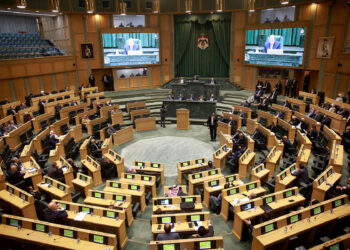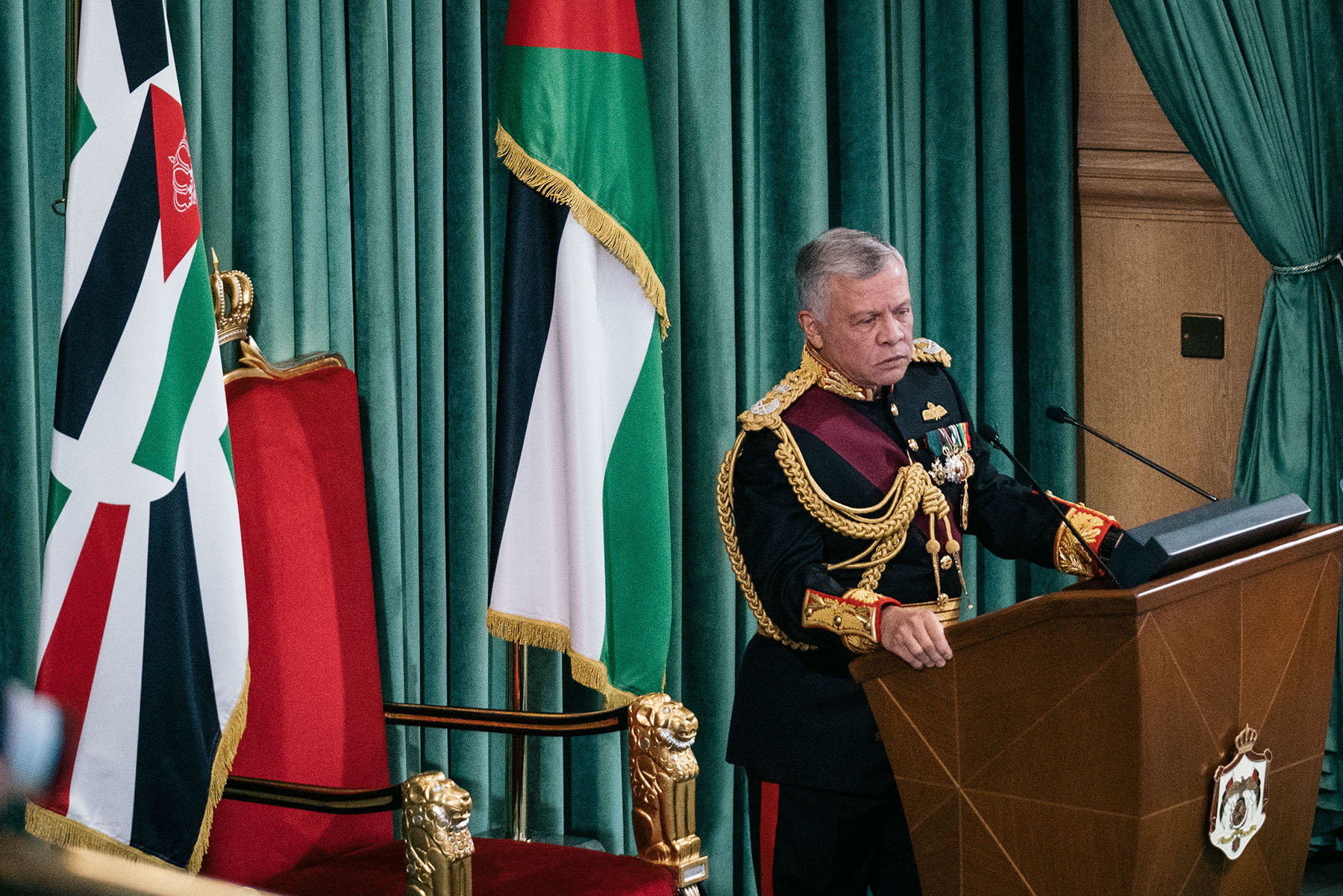Giorgio Cafiero is the CEO and founder of Gulf State Analytics, a Washington-based geopolitical risk consultancy.
The last-minute extension of the truce in Yemen earlier this month represented a major diplomatic breakthrough and a "rare glimmer of hope" for the country, as the U.N.'s special envoy for Yemen, Hans Grundberg, put it. The United Nations and Oman, which hosted talks on the truce, did much heavy lifting to make it possible, more than seven years after the Saudi-led intervention against Houthi rebels began.
The halt in hostilities has provided the people of war-torn Yemen desperately needed relief from a conflict that has taken approximately 150,000 lives, displaced millions and caused man-made humanitarian disasters, including famine. For more than two months now, fuel ships have been coming into the port of Hodeida and commercial flights have taken off from Sanaa's international airport, allowing sick and wounded Yemenis to receive much-needed treatment abroad. The Saudi-led coalition had blockaded both the port and airport for years while previous talks to ease the blockade and secure a truce failed.
This month, delegations representing the Houthi rebels who control Sanaa and its rival U.N.-recognized and Saudi-backed government of Yemen have been engaged in talks in Jordan under U.N. auspices. Yet it is unclear what this dialogue will produce. Despite the truce and the talks in Amman, there are valid concerns that the warring sides will fail to overcome the delicate political issues and root causes of Yemen's war.
Houthi violations of the truce have raised questions about their commitment to peace—while the Houthis themselves maintain that the Saudi-led coalition has not allowed all the ships to enter Hodeida, or the flights in and out of Sanaa, that Riyadh agreed to under the truce. The U.N. acknowledges that not all the truce's measures have been fully implemented. The Houthis fear that the Saudi-led coalition will use the truce as a chance to fortify its positions and prepare for a new round of fighting after the truce expires. These fears have prompted the Houthis to remain heavily militarized and consolidate their control over Sanaa and other parts of northern Yemen, while stepping up their own preparedness for a possible return to all-out fighting.
Despite the truce and ongoing talks in Amman, there are valid concerns that the warring sides will fail to overcome the delicate political issues and root causes of Yemen's war.
- Giorgio Cafiero
Adopted on April 14, 2015, following the Saudi-led intervention to oust the Houthis from Sanaa and restore the internationally recognized government, U.N. Security Council Resolution 2216 calls on the Houthis to "withdraw from all areas seized during the latest conflict, relinquish arms seized from military and security institutions, cease all actions falling exclusively within the authority of the legitimate Government of Yemen and fully implement previous Council resolutions." The Yemeni government still sees this resolution—which 14 out of 15 members on the Security Council voted for, with one country, Russia, abstaining—as the basis for resolving this conflict. Yet there is absolutely no reason to believe that the Houthis are on the verge of accepting these terms.
From April 2017 to March 2019, Fernando Carvajal, a Yemen expert with almost two decades of fieldwork experience in the country, served on the U.N. Security Council's Panel of Experts on Yemen. Carvajal said in an interview that the Houthis are "nowhere close to a deal that allows the government of Yemen to return to Sanaa." Such an arrangement would result in the Houthi movement suffering "major losses, as the government would demand all Houthi forces leave the capital," which is "nowhere in the Houthis' plans." Meanwhile, the Yemeni government—and its Gulf backers—would never accept any peace plan that prevents the implementation of this part of Resolution 2216.
"The Houthis are not yet ready to sit down for talks toward a final solution of the conflict," Carvajal said. He warned that the truce's extension, absent a wider diplomatic process, "could slowly normalize current front lines and give the Houthis the sense that they can live with a fractured Yemen as long as they don't lose more territory."
But the Houthis, for their part, continue to believe that the conflict can't end until the Gulf states that intervened in Yemen fully respect the country's sovereign rights. With the United Arab Emirates having essentially made the strategic island of Socotra an Emirati possession and built up its military footprint in Yemen's Red Sea port of Mocha, the Houthis see themselves in a struggle against the UAE's expansionist agenda, on top of their war against the Saudi-led coalition.
The Houthis' long siege of Taiz, Yemen's third-largest city, is a delicate issue that the U.N. envoy addressed with the delegations earlier this month in Jordan, presenting a proposal that details plans for slowly reopening roads into the city. It is important to consider what the Houthis stand to lose from lifting the siege, which has been in place since March 2016. An end to Houthi control of this highly strategic part of Yemen would undermine the militant group's ability to generate revenue from taxes imposed on goods coming into Taiz from Aden.
For the Houthis, ending their siege of Taiz would be the "real test of their desire to implement the truce," according to Abobakr Alfaqeeh, a freelance Yemeni journalist. "If this falters, I do not foresee any real future for the truce and any near peace in Yemen. So far, the Houthis have not shown any positive signs regarding the opening of roads in Taiz. Rather, they are trying to defraud the agreement and try to open bumpy dirt roads that never serve the purpose of the agreement." He cited local sources that report the Houthis have recently transferred military equipment to Taiz. "They are also building a dirt road towards the city fronts, which they are likely to use militarily," Alfaqeeh said. "That's not a sign of any goodwill."
However tenuous, the truce has still been welcome from a humanitarian standpoint. But militarily and politically, the picture remains grim in the Middle East's poorest country.
- Giorgio Cafiero
If simply opening a road in Taiz has faced so much Houthi intransigence, what chance does a wider peace deal have? As Alfaqeeh put it, "The position of the Houthis towards lifting the siege of Taiz reveals the difficulty, or impossibility, to persuade the group to help end the war."
While there has been a lull in fighting, not all violence and civilian suffering have abated. "I am extremely concerned about the human rights abuses and violations persisting under the truce," said Afrah Nasser, a Yemen researcher for Human Rights Watch. "The international community should seize the opportunity of the truce to establish a new independent, international mechanism to document abuses in Yemen and ensure that any coming peace negotiations take accountability for ongoing and previous abuses by parties to the conflict and victims redress into account."
The wider impacts cannot be ignored. A decrepit oil supertanker, the FSO Safer, has been sitting off the Yemeni coast in the Red Sea with virtually no maintenance since the start of the war, rusting away while holding more than one million barrels of oil. The U.N. has for years warned that it could rupture, with damage to Yemen, Saudi Arabia and countries in the Horn of Africa on a level that is difficult to fathom, environmentally and economically. It would be an unprecedented oil spill, far worse than the Exxon Valdez disaster, that environmentalists estimate would cost $20 billion just to clean up.
Unfortunately, the fate of the FSO Safer, which is moored in waters north of Hodeida under Houthi control, is tied to the politics of Yemen's war. If the Houthis permitted the U.N. to offload the vessel's fuel, as it prepares a salvage operation, it would constitute a major step in confidence-building by the rebels. Yet there is reason to doubt their willingness to take this step, given what Carvajal called "Houthi rhetoric on sovereignty over Yemen's natural resources." They want to maintain control of the area around Hodeida, and access to oil infrastructure, at all costs. "The Houthis know this would be a major defeat for them among their supporters, as symbolically they would lose the potential to export oil from territory they hold," he said.
However tenuous, the truce has still been welcome from a humanitarian standpoint. But militarily and politically, the picture remains grim in the Middle East's poorest country. For all the talk about progress for peace in Yemen, the situation on the ground is too tense and fragile to justify such optimism. Although the truce may hold for now, and diplomacy may continue, the warring parties are also preparing for new rounds of fighting to break out, even as the U.N. envoy urges them "to make necessary compromises for the benefit of Yemen as a whole." The "rare opportunity" that the truce offers "to pivot towards peace," as Grunberg has said, could be lost.































![Security forces loyal to the interim Syrian government stand guard at a checkpoint previously held by supporters of deposed president Bashar al-Assad, in the town of Hmeimim, in the coastal province of Latakia, on March 11, 2025. Syria's new authorities announced on March 10, the end of an operation against loyalists of deposed president Bashar al-Assad, after a war monitor reported more than 1,000 civilians killed in the worst violence since his overthrow. The Syrian Observatory for Human Rights said the overwhelming majority of the 1,068 civilians killed since March 6, were members of the Alawite minority who were executed by the security forces or allied groups. (Photo by OMAR HAJ KADOUR / AFP) / “The erroneous mention[s] appearing in the metadata of this photo by OMAR HAJ KADOUR has been modified in AFP systems in the following manner: [Hmeimim] instead of [Ayn Shiqaq]. Please immediately remove the erroneous mention[s] from all your online services and delete it (them) from your servers. If you have been authorized by AFP to distribute it (them) to third parties, please ensure that the same actions are carried out by them. Failure to promptly comply with these instructions will entail liability on your part for any continued or post notification usage. Therefore we thank you very much for all your attention and prompt action. We are sorry for the inconvenience this notification may cause and remain at your disposal for any further information you may require.”](https://dawnmena.org/wp-content/uploads/2025/04/syria-22039885951-360x180.jpg)






